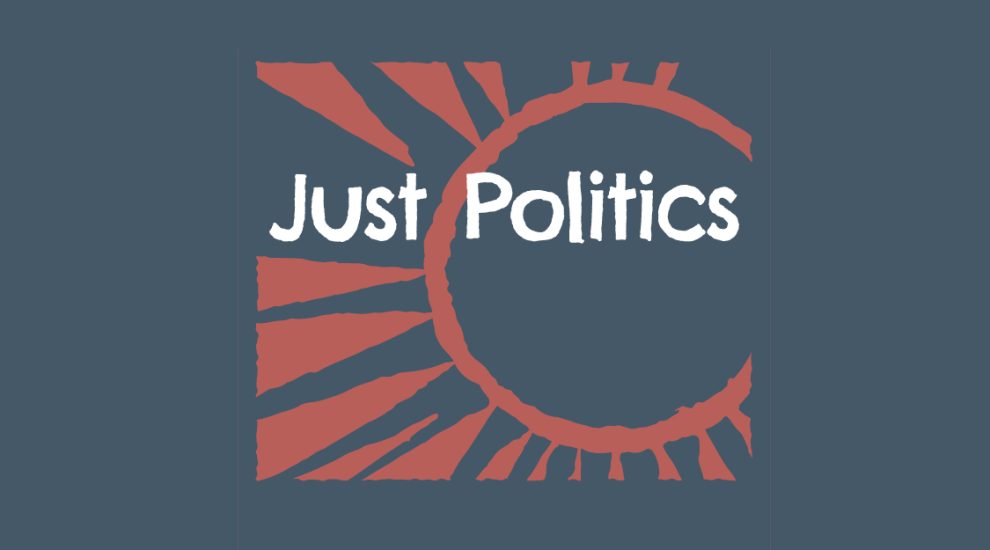This episode of Just Politics sounds a little different—and that’s the point.
Rather than diving into our usual policy discussion, hosts Colin and Eilis pass the mic to a group of young men wrestling with one of the most pervasive forces shaping our political and cultural moment: toxic masculinity. These college students are all part of NETWORK’s Carroll Coston Fellowship, a leadership program named after Sister Carol Coston, one of NETWORK’s founding sisters and its first executive director.
Together, they explore what it means to be a man in 2025, especially in the wake of the 2024 election, where the “manosphere” made headlines and MAGA bravado showed up in force on college campuses. These young leaders speak candidly about gender norms they’ve inherited, what they’ve had to unlearn, and how they’re trying to show up differently not just for themselves, but for the people around them.
You’ll hear from:
- Steven, a student at Barry University in South Florida, reflecting on faith and masculinity in a culturally complex environment
- JC, a student from Atlanta studying in rural Pennsylvania, who talks about online influence and its impact on young Black men
- Ben, who grew up in Kentucky and shares his evolving understanding of privilege, power, and accountability
- Jack, a social work student offering a powerful reflection on “collectivist masculinity”
- Jonathan, a business student at Marquette learning to speak up as one of the only students of color in the room
- Aaron, an international student athlete from Canada who reflects on masculinity in immigrant households and team culture
The conversation closes with where they’re finding hope and what examples of healthy, authentic masculinity they’re carrying with them into the future.
Whether you’re a parent, teacher, organizer, or someone thinking about how culture is shaping politics, this is a conversation you won’t want to miss.
Links:











Add comment